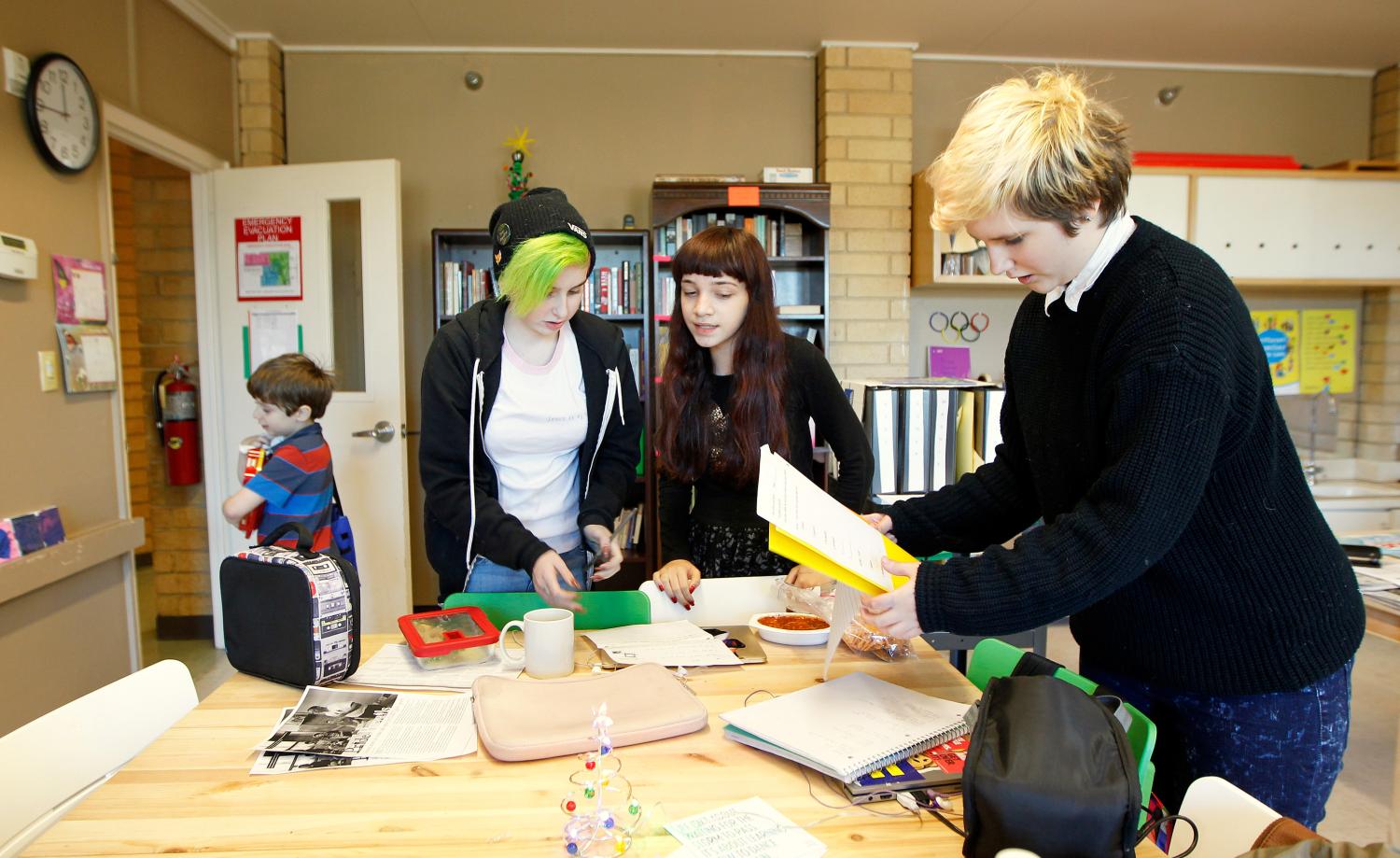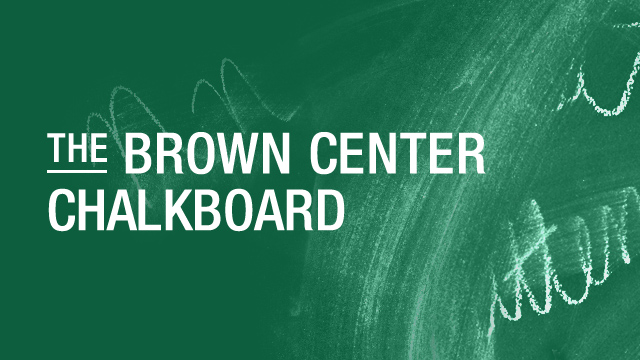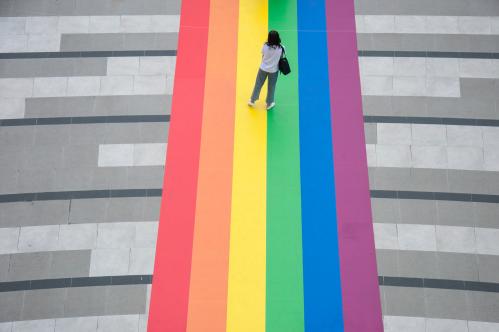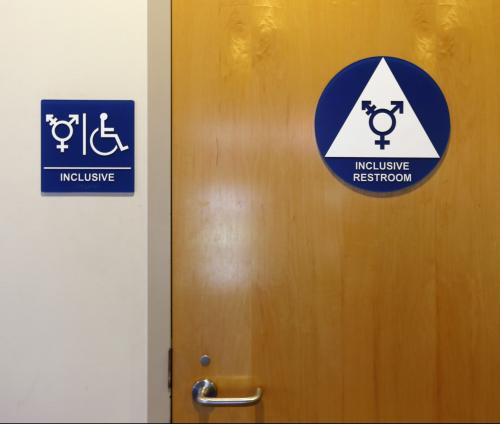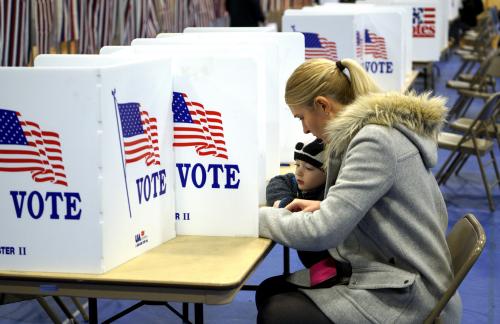The U.S. Department of Education under Secretary Betsy DeVos has recently taken steps to walk back the agency’s role in protecting the civil rights of LGBTQ students. In multiple congressional appearances, for example, DeVos has consistently declined to say that the department will protect LGBTQ students from discrimination. Further, the agency decided this past fall to rescind the Obama administration’s Title IX guidance regarding transgender students. As one of us has argued, this move leaves transgender students at risk and is out of sync with federal law. Nonetheless, the Department of Education is doubling down on this approach and recently announced that the Office of Civil Rights will no longer accept complaints about transgender students not being able to use a bathroom that matches their gender identity. While these recent policy decisions affect transgender students in particular, these actions combined with DeVos’s testimony leave the impression that the department is taking a hands-off approach toward enforcing federal civil rights laws as they pertain to LGBTQ students.
The Department of Education’s current approach toward its enforcement role is a concern, particularly given new evidence from a recent nationally representative survey of LGBTQ adults. This survey shows that many LGBTQ people report and perceive discrimination in school settings, both at the K-12 levels and in higher education. This survey, produced by NPR, the Robert Wood Johnson Foundation, and the Harvard T.H. Chan School of Public Health (NPR/RWJF/Harvard), provides a valuable and rare snapshot into the perceptions and experiences of LGBTQ individuals. Below, we discuss what we can learn from this survey about the experiences of LGBTQ individuals and, in particular, their perception of discrimination in educational contexts.
In the context of K-12 education, the survey asked LGBTQ respondents whether they agree or disagree with the following statement: “Because of the way the schools operate where I live, LGBTQ children here don’t have the same chances to get a quality education as children who are not LGBTQ.” Overall, 43 percent of LGBTQ respondents agree with this statement, while 52 percent disagree, and 5 percent say they don’t know. For a point of reference, the share of LGBTQ respondents who agree with this statement is roughly the same as the share of Latinos (45 percent) and Native Americans (40 percent) who say that Latino or Native American children (respectively) do not have the same chances to get a quality education as white children, as we reported in a prior post.
While not a majority, a substantial amount of LGBTQ people agree that LGBTQ students’ education is negatively impacted because of their sexual orientation and/or gender identity. These survey results are consistent with other major research in this area, including GLSEN’s 2015 National School Climate Study, which found that LGBTQ students face a “hostile school climate” because of the harassment, bullying, and discrimination they experience at school. The survey results further suggest that this problem is not confined to K-12 education. The following figure shows LGBTQ people’s perceptions of how often lesbian, gay, and bisexual (LGB) people in their neighborhood are discriminated against when applying to or while at college, and separately their beliefs of how often transgender people are discriminated against when applying to or while at college.
Overall, large majorities of LGBTQ people believe that both LGB and transgender people are discriminated against at college, though they perceive this discrimination happening slightly more often against transgender people. As shown in Figure 1, 58 percent of LGBTQ respondents say that, where they live, LGB people are sometimes or often discriminated against at college. Slightly more, 64 percent, say that transgender people are sometimes or often discriminated against at college. (Click the figure below to see a full-size version.)

Notably, low-income LGBTQ people and LGBTQ people living in the South are significantly more likely than their counterparts to say that LGB people “often” experience discrimination at college. (There are no statistically significant differences for perceptions of discrimination toward transgender people.)
Overall, these survey results show that LGBTQ people perceive and experience anti-LGBTQ discrimination in both K-12 and higher education settings. The Department of Education should treat this problem seriously, given its mission to “strengthen the Federal commitment to assuring access to equal educational opportunity for every individual.” By backing away from its role and mission, even when it is clear that LGBTQ students need the federal government to protect their rights, the Department of Education is taking steps in the wrong direction.
The Brookings Institution is committed to quality, independence, and impact.
We are supported by a diverse array of funders. In line with our values and policies, each Brookings publication represents the sole views of its author(s).

